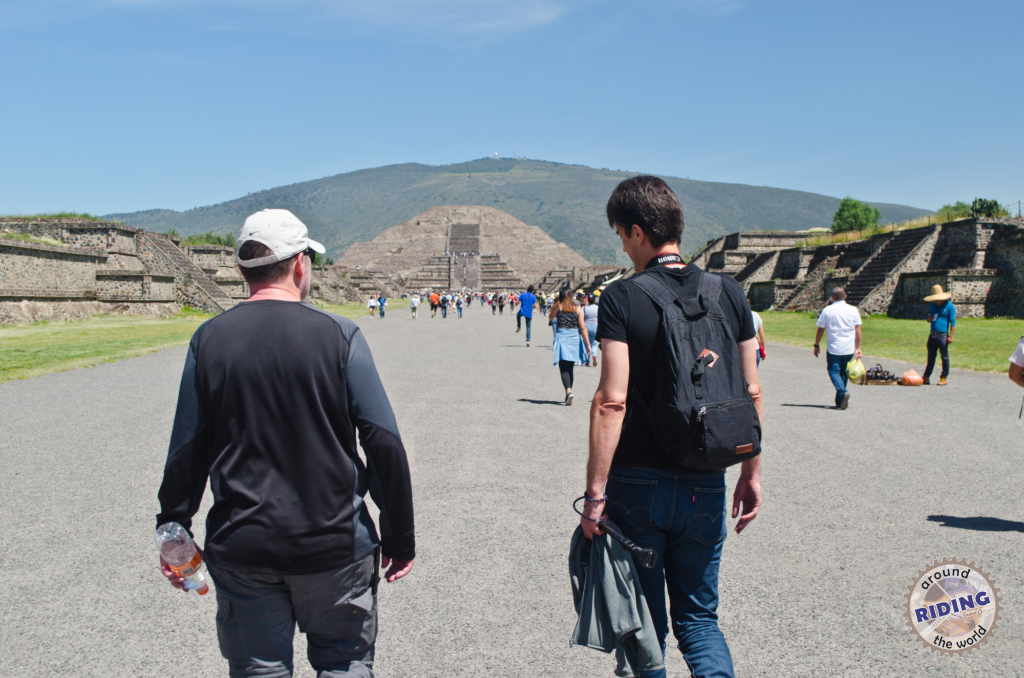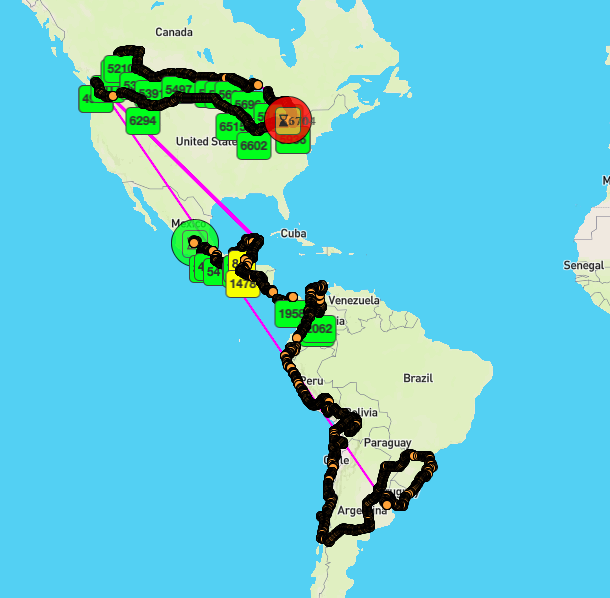Today marks exactly one year since we threw caution to the wind and embarked on this slightly crazy, but mostly amazing life-changing road trip across the Americas.
We have seen some of the most beautiful places and some underwhelming ones, met some wonderful people and some grumpy ones, eaten some delicious meals and some questionable ones, stayed in some luxurious places and some depressing ones. To say that we have learned a lot through it all would be an understatement.
In light of our enlightenment, we thought what better way to celebrate our first nomadic anniversary than to help our fellow and aspiring travellers be more cognizant while frolicking around the globe? We realize that everyone has their own way to travel and while that is great, there are some behaviours that ought to be universal among all travellers, without exception. Whether you like luxury or prefer to rough it out.
I will point out that this is going to be one of those posts that not everyone will like and that’s okay. My name is not Gandalf and I don’t have all the answers; just a few suggestions. What I do believe is that, as travellers, we have an obligation to always think about the consequences of our actions, especially in developing countries as their ecosystems are quite fragile.
With that in mind, here are a few of our tips on travelling like a good human…
Be a good guest
Visiting someone else’s country is the equivalent of visiting someone’s home; therefore, it is your obligation to be a good guest. You should make the effort to learn the local language instead of expecting everyone to speak English. You should dress according to the local customs, even if you don’t like it. You should show respect to the local culture, land, and its people, even if you come across things that you disagree with.
Chances are high that you will come across practices that you think are unfair or outdated, especially if you are from a liberal country and visiting a conservative one. Just remember that you are an outsider and you are the one who has to learn and abide by their rules. You are not there to impose your views upon the locals and tell them how they should do things in their own country. It is not your culture to change; change needs to come from within.
Engage with people
Language barriers can be frustrating when you really want to interact with locals; however, don’t let that hold you back. Even if your skills in the local language are not at a level you feel comfortable with, people usually appreciate the effort and can even help you improve.
And don’t be afraid to interact with people from all walks of life. Whether it’s the barista who made your coffee or the owner of the inn you’re staying at. Everyone is worthwhile and has a story to tell.
Share without preaching
In the same manner that you learn about the local culture, do share your own with locals, but leave the superiority complex out. For many people in developing countries, fulfilling basic needs is a priority that makes travelling a far-fetched dream.
Meeting foreigners is often the only way for them to meet people from different parts of the world so, when you learn about things like wedding festivities in the country, feel free to share how similar things are done in your part of the world, but without the attitude that things are better where you come from.
Share your stories, but let them think for themselves and form their own opinions. Don’t make anyone feel bad about where they’re from and what they have.
Avoid giving to beggars
I understand that giving to someone in need is a wonderful feeling. The truth is, when you give to beggars, especially children, you are providing a short-term solution that creates a much bigger long-term problem.
It is not always easy to ignore the hand in front of you and think of the repercussions of handing out money; however, it is important to remember that when you (and millions of other foreigners) give to beggars, you are perpetuating begging culture. If begging is profitable in a country where the poverty level is high, more people will do it and more kids will be kept out of school.
Respect the local ecosystem
Along the same lines of not giving to beggars, it is important to stop throwing money around like you’re Flavor Flav. If you go to a local restaurant and leave a 50% tip with your bill, the only person you are benefitting is the business owner who will see that as an opportunity to hike up the prices. Higher price tags mean that the restaurant becomes a tourist establishment where many locals can no longer afford to eat.
Talk to any Vancouverite about Vancouver’s housing market and you’ll understand how awful it is when your home city becomes unaffordable. When foreigners overpay for things, they drive the prices up so high that locals have to look elsewhere. There are literally streets of empty houses sitting in Vancouver because of this. If you hate it when foreigners gentrify neighbourhoods in developed countries where people have higher disposable incomes, why would you do that in a country where people struggle to feed their families?
If you want to help, the best thing you can give is your time. Whether it involves volunteering at a school or with NGO projects, you will be giving something far more valuable than money.
Resist glorifying tragedy
Unless you’re a photojournalist or documentary filmmaker doing a piece on human suffering or notorious criminals, sharing media that glorifies tragedy is simply perpetuating negative stereotypes of the country. The same principal applies to partaking in tours that engage in such activities.
If you really want to know about Pablo Escobar’s reign as the King of Cocaine in Colombia, talk to locals who have suffered or lost loved ones at the hands of a man who was basically a terrorist. If you really want to see how the destitute of the country live, why not volunteer your time at an organization that helps such people and learn a thing or two about humility?
People are not zoo animals and countries are more than their tragic past. Aim to empower and challenge stereotypes. Don’t air anyone else’s dirty laundry.
Support the local economy
Whether it’s eating at a local restaurant or buying locally-made goods, when you seek out local businesses, you help the local economy and usually at a much lower cost to yourself. Perishable and non-perishable goods sold through big international corporations often come with higher price tags, thanks to hefty importation taxes. Besides, those chicken nuggets will taste the same at the McDonald’s you have at home and that Forever 21 will have the same selection of clothing at your local mall so, why not give yourself a unique experience?
Don’t worry, I’m not suggesting eating rice and beans for every meal in order to support the local economy. It’s getting easier by the day to find a variety of different cuisines served in locally-owned restaurants. Thanks, globalization!
Limit interaction with animals
Whether it involves riding an elephant, taking a selfie with a tiger, or simply feeding some possums, it is important to think about the repercussions of your actions on the well-being of the animals you are interacting with.
Wild animals used for tourist activities are often taken from their mothers when they are young and beaten into submission over time. When not “working,” they are often bound by chains so short they can barely move and confined without adequate water, nutritious food, and necessary veterinary care. When you engage in activities that involve using animals as entertainment, you are ensuring that this type of treatment of wildlife continues.
Feeding animals is just as bad of an idea because they can become a nuisance or even a safety risk when they get used to people feeding them. They lose their natural fear of humans and can infest areas where people tend to gather. Think about it; pigeons in a courtyard make for an Insta-worthy picture, but you won’t find it so much fun when one of them craps on your hair.
Be objective
Locals always know their country and culture best, no doubt. Where to go, where not to go, the best places to eat, unique things to see, cultural norms… a local will have you covered.
But that doesn’t mean that you should take everything literally. Oftentimes, people are extra cautious when recommending things to foreigners, likely due to the fear of a bad experience tainting the entire country’s reputation. Locals undoubtedly know more than outsiders, but that doesn’t mean that their word is set in stone. This especially applies when they warn you about neighbouring countries that they themselves have never set foot in.
If this was the case, we would have died in Mexico. Spoiler alert: we’re still alive! 🙂




